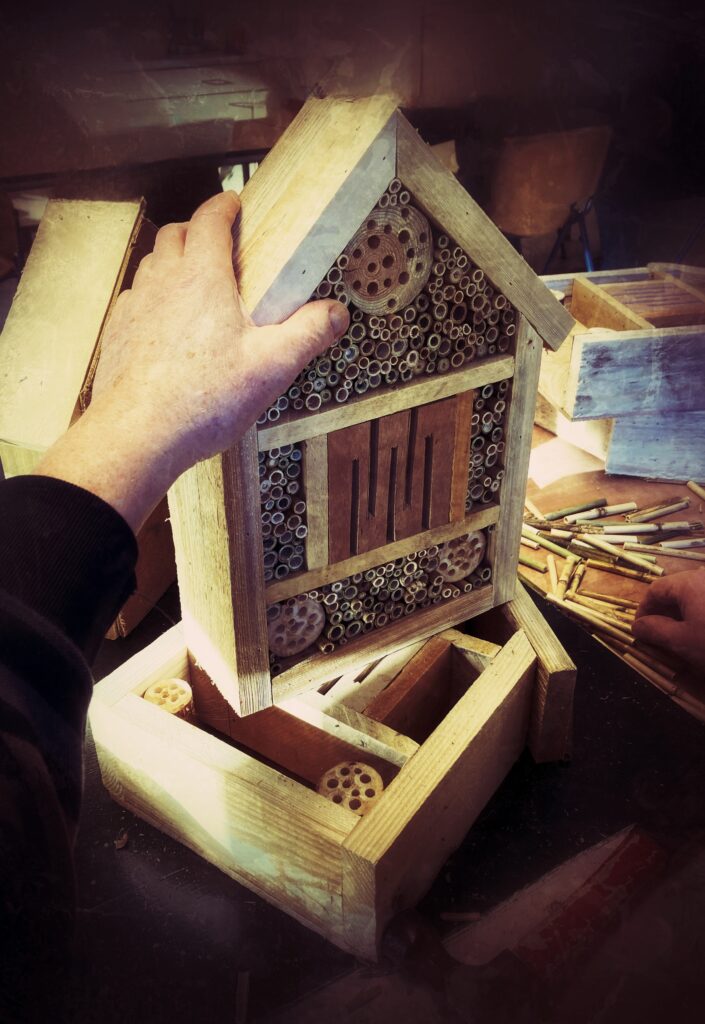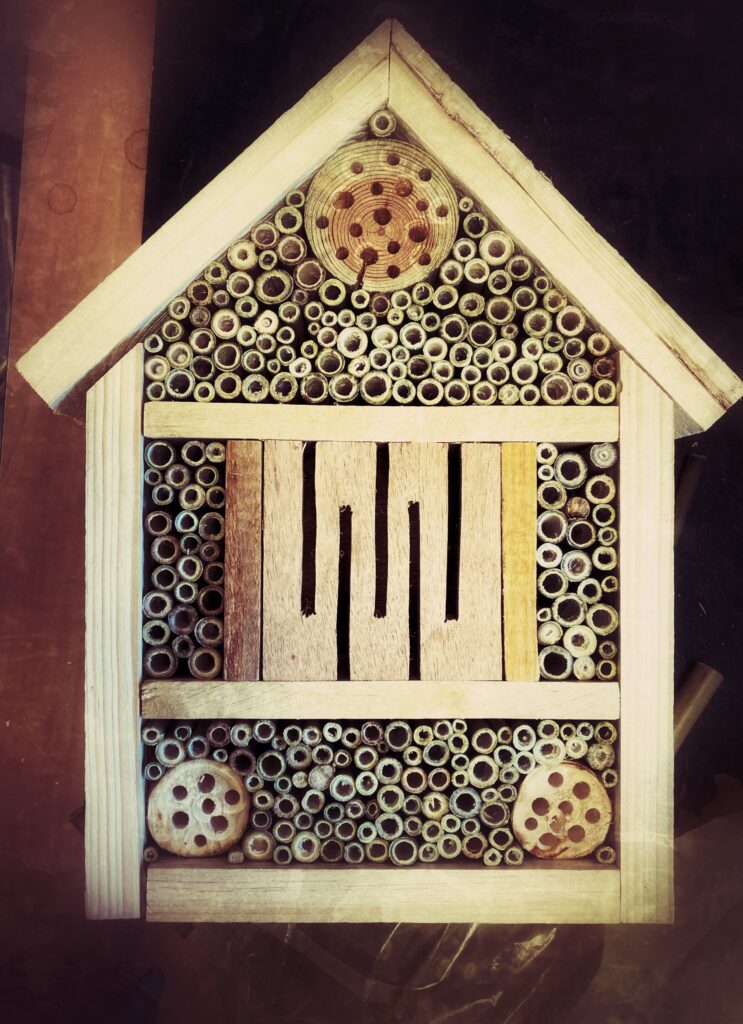Bee hotels
On a bustling Saturday morning at the Beekeeping Association in Boxtel, the air is filled with the sound of activity.
With the chill still lingering, fellow beekeepers gather, clutching steaming cups of coffee, to craft insect hotels for the upcoming bee market.
The workshop hums with the sound of sawing reeds, hammering wooden planks into house shapes, and meticulously drilling barks and planks together. All in the name of supporting local pollinators.
These insect hotels are being prepared for the upcoming Bee Market on Sunday April 21, 2024.
Alongside these sanctuaries for solitary bees, a plethora of bee-friendly plants, honey, and educational resources will be available.
I’ll also be present to sign copies of my book, Roots & Renewal. In it, I share my journey into beekeeping, how understanding the rhythm of bees has deepened my appreciation for nature and our place within the ecosystem.

Why are bee hotels so important?

Bee hotels provide above-ground nesting sites for solitary bees, offering these essential pollinators a safe space to thrive.
Gardens abundant with bee-friendly flowers can benefit wild bee populations by providing nesting sites and attracting beneficial insects, contributing to the overall health of bee populations.
What to consider when purchasing an Insect Hotel
- Ensure the wood is closed on one side to provide a secure nesting environment.
- Smoothly drilled holes so that the wings of the pollinators will not be damaged
- Made from durable materials (hardwoods such as oak, maple, birch), bamboo, or reeds).
- Securely assembled to withstand the curious pecking of birds, who may attempt to dismantle them.
Join us in supporting local pollinators and enhancing biodiversity by welcoming these charming insect abodes into your garden. Together, we can create thriving ecosystems that benefit both wildlife and humans alike.
Brede Heide 5, 5281 RX, Boxtel